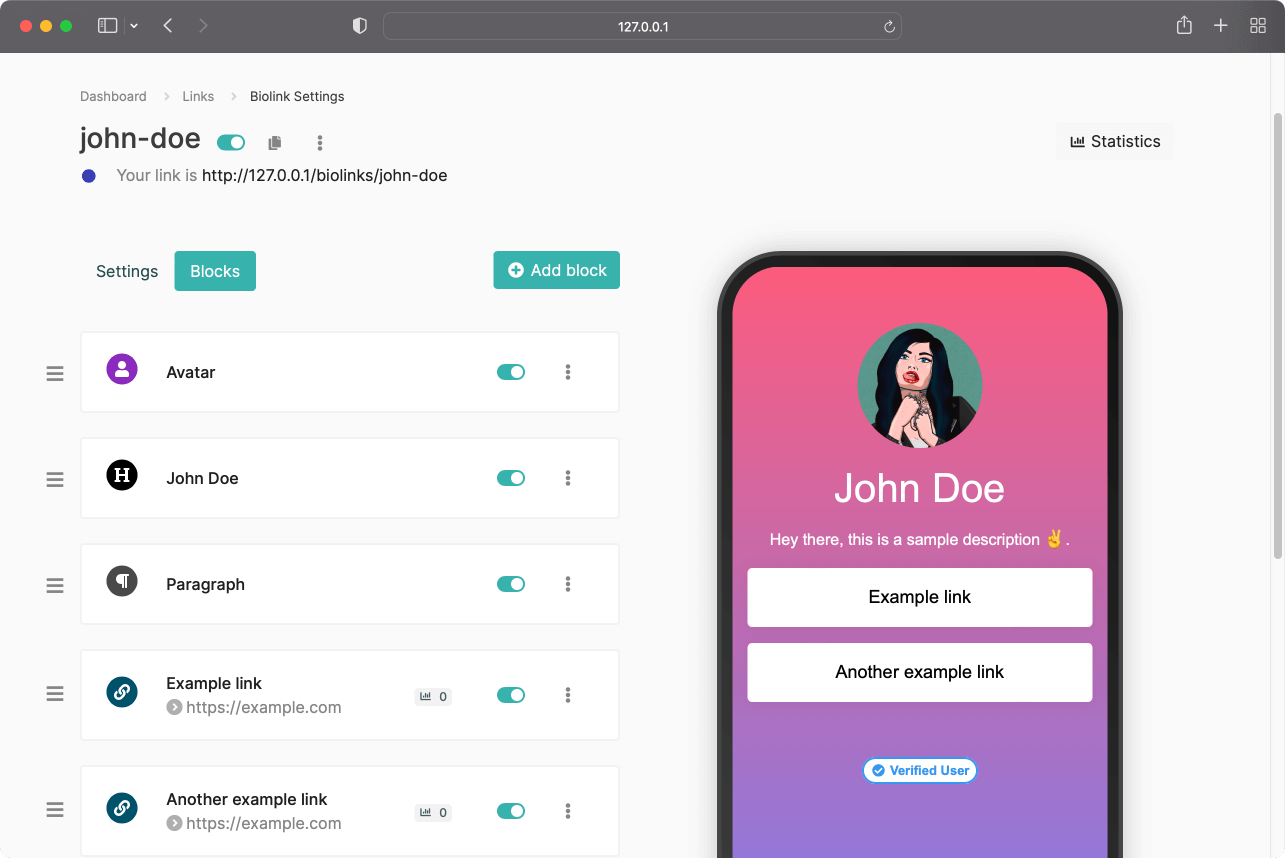When Google says that it is an AI-first company, it means that all of its products have AI at their core. Specifically, it means that all of its products have Google Assistant at their core!
Google’s Sundar Pichai, says that he doesn’t want Google to simply use AI in its hardware and software, but rather to invent products and services from the ground up that couldn’t exist without AI. A perfect example of this is Google Clips
– a camera that you wear that takes photos automatically when it thinks something exciting is happening. This is the kind of concept that is only possible thanks to machine learning and computer vision.
Even the Pixel line of phones can be seen primarily as an attempt to put Google Assistant right into people’s pockets.
And this is where the real “big idea” makes itself known. Google wants to get to a point where all of us talk to it every single day, using natural language. Google Assistant has the ability to answer questions about nearly any given topic, by understanding what the user is asking, looking for relevant information on the web, and then reading that back in an easy-to-understand manner.
Because if AI really is going to be the next HUGE thing on the web like everyone is saying, then Google wants to make sure that it is the go-to platform that everyone uses. This is Google betting BIG on the future, and going all-in on an AI focussed line of products and services.
So what does all this have to do with internet marketing?
The thing to recognize here, is that Google Assistant works using Google Search – the two products are in fact so closely linked as to be almost one and the same. Google Assistant is ultimately a very fancy form of voice search, and Google Search is essentially an assistant that you talk to by typing.
For a while now, Google has been leaning toward a more natural-language type of search. Back in the old days, Google worked essentially just by looking for matches between search terms and keyphrases. If someone searched for a specific phrase, then Google would look for content that used that precise term.
But this had problems. For one, it made it extremely easy for marketers to
“game the system.” You
could manipulate Google’s algorithms by inserting keyphrases repeatedly,
even if your content wasn’t of any interest to the person looking for it.
At the same time, it meant that high quality content that didn’t happen to do
keyword research wouldn’t get anywhere.
And it meant that Google would often serve up the wrong content. It would look for keyword matches, but with no regard to the sentence. If you searched for “decision tree” then it might bring up content about making decisions about trees – rather than the flow-chart meaning that you meant.
Google adapted by introducing RankBrain – an algorithm designed to better understand what the user actually meant rather than what they said.
RankBrain can do a few things. For one, it takes words and segments them: categorizing them into phrases that it thinks might be related to one another. This helps Google to better understand what a user wants to learn about, and it means that Google can guess what a word it isn’t familiar with might mean. Those groups of words (word vectors) are categorized using a process known as distributed representation. What that means, is that words that are close together in terms of meaning and context are grouped, thereby helping Google to understand more and allowing it to be more flexible in the way that someone searches.
RankBrain will then try to map the query into words that it can understand and will look for related terms and phrases. These will then be used to sift
through the huge indices of content that Google has access to, and to find the most relevant results for the user.
In the past, Google wanted you to search terms like:
“Buy hats online”
But now it wants you to speak naturally using a phrase like:
“Hey Google, where can I get nice hats online?”
Thanks to RankBrain, it will know that in this context, “where can I get” is essentially equivalent to “buy.” Thus the user feels they can speak to Google more like a human, and that they will get more relevant results than ever before.
RankBrain is also able to understand the relationships between words, and that includes the role of words like “and” and “or.” These can subtly change the meaning of a search term, but previous versions Google’s algorithm would simply have ignored those joining words.
RankBrain also improves on its own results over time. It can use data such as CTRs in order to ascertain whether it provided the correct results, and use this information to inform itself for next time. It’s constantly improving.
RankBrain is so advanced, that it actually needs specially designed chips called Tensor Processing Units (TPUs) in order to work. When you search for something on Google, it will actually outsource the question to these TPUs in the cloud and use that to sift through huge amounts of content.
So, now you understand how search has been impacted by Google’s decision to become an AI-first company, the next question should be: what can you do about it?
How can you make sure that your site is futureproof and able to thrive on RankBrain? One answer is to use something called Latent Semantic Indexing.
Traditional keyword use is not dead, but it certainly isn’t the be-all and end-all it once was. After all, if Google wants people to search by speaking to it using natural language, then it can hardly expect to use clean and clear-cut search terms.
If people are indeed looking for hats by saying “where can I get some nice hats online?” – which is the way that people speak – then how can this lend itself to a search term? You can hardly lace that type of language into your content the way you once did with “buy hats online.”
And seeing as different people speak differently, this also means that the search volume for any one given phrase is likely to decrease.
This is why it’s good news that Google is now able to understand synonyms. The keyphrase you target can be “buy hats online” and if someone searches for
“where to get hats online” your site might still come up. Because Google understands that given the context, those two phrases mean the same thing. At the same time though, this means that you’re now also competing with all those people who created websites targeted phrases like “online hat store.” Suddenly, the value of specific keyphrases is significantly diminished.
To really see how this works, consider this example. Let’s say that you search
for:
“What is the first song in Tangled?”
Normally, the old Google would have responded by looking for articles that repeated that question (probably awkwardly). Today, Google is able to actually bring up the first song from YouTube. That’s impressive for a number of reasons.
It means that Google understands that Tangled refers to the film for example, and not just the adjective. It can do this because RankBrain uses word vectors
and relationships to see that if you’re talking about songs, then you’re probably
talking about the film.
It’s also impressive that it knows the first song. How does it do this? Well, if the video on YouTube is called “Tangled opening song,” then RankBrain can help Google to understand that the two phrases mean essentially the same thing, and to thereby provide that as a relevant response.
It’s impressive stuff, but again, it makes it hard for those of us using traditional forms of SEO!

So what can you do to ensure that your pages continue to be served by Google in this new era? The rest of this report is going to be dedicated to answering that question. Here are some of the best ways to ensure your site works with this new smarter Google.
Note: With all the following said, it is still important to continue using traditional keywords and search phrases. This will still form the lynch pin of your SEO strategy, it’s just that you will now also be using some slightly more subtle techniques as well.
Questions
The first tip is to consider using more questions in your content.
This is a smart strategy because of course, people who speak to Google naturally often do-so in the form of questions. You don’t just say “buy hats online” as we have already established! Unfortunately, questions are harder to naturally include in your content. But if you are creative, then there are plenty of ways to make this work. One of the best and most obvious is just to include questions in your headings.
So you might use a heading that says “Where Can I Buy Great Hats?” and
then dedicate the next section of the text to answering that question. Likewise, you can use rhetorical questions within your text.
But how do I use rhetorical questions in my text? You ask.
The answer is in that previous sentence… just in case you didn’t notice! Throughout any piece of content, try to think of the questions that people might ask in order to get to your content – and then find ways to lace those phrases into your writing.
LSI
What you might also benefit from paying attention to though, is something called latent semantic indexing, or LSI.
Latent semantic indexing is a term that has recently become popular in SEO
circles as the “answer” to Google’s new strategies. This basically means that you aren’t just using direct keywords and phrases, but that you are instead using them in conjunction with related terms and synonyms. By doing this, you better communicate to Google what your content is all about.
Remember the example earlier with the decision trees? Imagine if someone searched for “best trees for winter” and your post on decision trees came up. That wouldn’t be great for Google or for you (that is hardly targeted traffic!).
But if you were to include terms related to your topic – such as flow chart,
choices, etc. then Google would know that you’re talking about a form to help
people make decisions, rather than decisions about trees!
Likewise if you write an article about Apple the electronics manufacturer, how does Google know that you’re not talking about apples as in the fruits? The answer again comes down to related terms and context. If you also happen to have mentioned computers, Mackintosh, iOS etc., then this can help Google to know that you’re talking about the tech giant and not food.
How to Use LSI in Your Content
So how do you go about using LSI in your own content?
The surprising answer is that you shouldn’t need to think about it at all. That’s because good writing should include synonyms and related terms naturally. Google has designed its algorithm to work with the content that is already out there, and it shouldn’t require you to do anything different. That’s the whole point of Google getting smarter – it should become better at identifying natural content that already exists. If you need to change the way you write to match Google, then it defeats the whole object!
That said, there are one or two things you can do. The first is to make sure that you are using as much relevant language as possible. If you are someone who tends to have a narrow vocabulary, then trying to include more contextual terms and related phrases may help.
Another tip is to consider using contextualizing terms in your keywords. For
example if you write about “difficult exercises” then this could refer to physical exercise or it could refer to mental exercises. By adding “for toning” on the end
however, you make it clear that you’re talking about physical exercise. You’re still
also targeting that simpler “difficult exercises” term, but by using “difficult exercises for toning” you are inviting more searches to lead to your page.
Long Tail Keywords
A similar concept is the long tail keyword. Long tail keywords are search terms that people use occasionally to find your content, but that no sane SEO would ever attempt to target.
For instance, someone might search for “what is the average size of a tomato” and find your page. But there likely isn’t anywhere near enough search volume for you to want to specifically target that phrase. So what some marketers will focus on, is creating as much content as possible while lacing it with lots of random phrases and terms that people might just so happen to search for.
The more content you add, the more people will find their way to your site through random long-tail searches. The best part is that this makes your
business extremely resilient, as you can’t see your traffic completely fall off a cliff
just because someone supplanted you for a single search term.
But long tail keywords also suit themselves perfectly to a more natural- language oriented Google. Why? Because when you ask Google a question, you won’t use the same set phrase as everyone else. Instead, you’ll likely ask a question using natural language. Every time someone asks a question, they’ll probably use a slight variation on the phrase. Again, the best way to satisfy the spoken-word Google is to write broadly on your subject, using as much related language as possible.
Schema Markup Language
The only issue with this approach of using large amounts of related content, is that it can become a little confusing for Google. With so much content to sift through, how does it know what’s relevant to the question at hand?
Remember, Google ideally wants to be able to read the answer aloud back to the user without even having to load the website. When you ask what goes into a bolognaise, Google wants to be able to reel ingredients off of a list.
Google therefore needs your help when it comes to identify key parts of your
content, and that’s where schema markup comes in.
This is essentially a form of structured data. It means that you’re taking your content and then adding in HTML tags that help to identify what specific pieces of text actually are.
Markups can be used to help identify ingredients in a recipe, the date and location of an event, the star rating of a product, or the author of an article. All this allows Google to better pinpoint answers to questions, and to help users with their queries.
Using these markups is a simple matter of finding the HTML online and then just pasting it onto your page. Alternatively, there are plenty of tools and plugins that will automate the process for you.
The problem with markups of course is that they allow Google to use your information without the user even needing to load your page. That means no ad clicks, no affiliate sales, and no brand awareness. This is something Google has been increasingly guilty of lately, and it’s something that may become a big issue in the future.
For now though, it’s still worth your while using markups. For one, these are also what Google uses to make its “rich snippets.” These are more dynamic and engaging search results which have the effect of jumping out of the page to get considerably higher CTRs.
At the same time, if you don’t use markups, then you know that your
competition will. For now, it’s better to get into Google’s good books, and
hopefully reap the rewards with your position in the SERPs.
Write Great Content
Finally, the last tip is to write great content. Remember: the other reason that Google is getting smarter is so that it can get better at providing users with content that is useful and relevant. Google wants people to keep using its search tool, and as such, it needs to ensure the results are as accurate as possible.
Every time Google gets smarter, it’s going to become better at identifying spammy content vs high quality content. If your site is focussed purely on creating the best content possible, then your goals will be aligned with Google. From then on, every change will help to give your site more visibility in the SERPs.
Don’t try to “beat” Google, just focus on creating the best content you can!
























No Comments